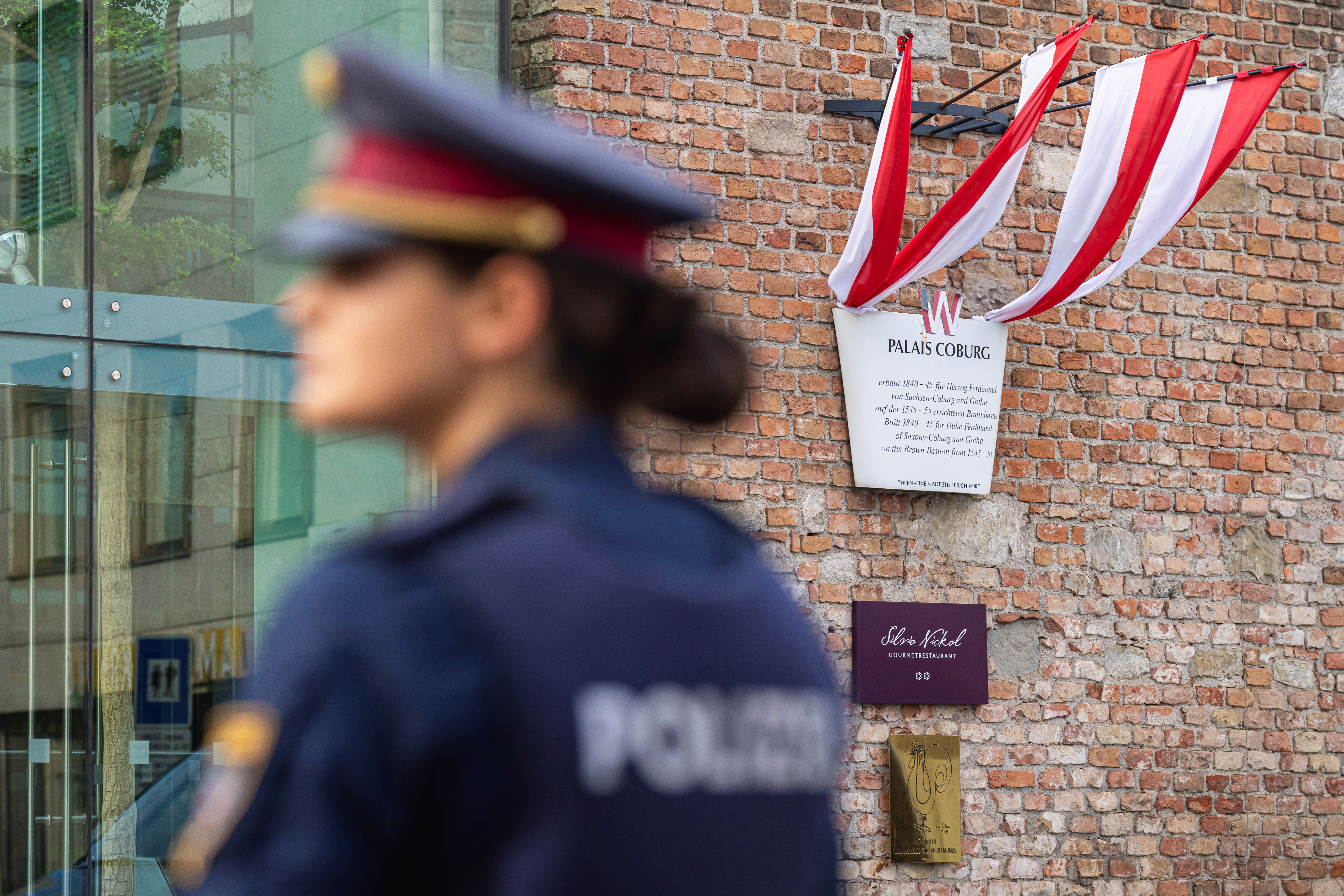Vienna deal must fulfill Iran's demands: Iran FM
Iranian Foreign Minister Hossein Amir-Abdollahian tells EU Foreign Policy chief Josep Borrell that the final text of the Vienna negotiations must meet with Iran's demands.
-

A police officer stands in front of the Palais Coburg where closed-door nuclear talks take place in Vienna, Austria, Friday, August 5, 2022 (AP Photo/Florian Schroetter)
The Iranian delegation to the Vienna talks participated in the nuclear negotiations with the serious intention of reaching an agreement, and it presented constructive proposals to solve the outstanding issues, Iranian Foreign Minister Hossein Amir-Abdollahian said Monday.
Amir-Abdollahian told EU foreign policy chief Josep Borrell that the Islamic Republic informed EU chief negotiator Enrique Mora of Tehran's points of view and commented on the coordinators' proposals.
"We expect all the parties to show willingness and seriousness toward reaching an agreement on the final draft of the agreement," the top Iranian diplomat told his EU counterpart.
He also underlined that "the final draft of the agreement must fulfill Iran's interests and guarantee the lifting of the sanctions" imposed on the Islamic Republic in the wake of the US withdrawal from the Iran nuclear deal, formally known as the JCPOA.
Read next: Iran will not drop demand of removing IRGC from 'terror list'
"What can be negotiated has been negotiated, and it’s now in a final text. However, behind every technical issue and every paragraph lies a political decision that needs to be taken in the capitals. If these answers are positive, then we can sign this deal," Borrell said on Twitter.
What can be negotiated has been negotiated, and it’s now in a final text.
— Josep Borrell Fontelles (@JosepBorrellF) August 8, 2022
However, behind every technical issue and every paragraph lies a political decision that needs to be taken in the capitals.
If these answers are positive, then we can sign this deal.
The top EU diplomat noted that negotiators used these days "to fine-tune and address - with technical adjustments - a handful of issues remaining in the text" during the talks in Vienna.
In 2015, Iran signed a nuclear deal, known officially as the JCPOA, with the P5+1 group, which includes the US, China, France, Russia, the UK, Germany, and the European Union.
It required Tehran to scale back its nuclear program and reduce its uranium reserves in exchange for sanctions relief, including the lifting of an arms embargo five years after the deal was made.
Former US President Donald Trump unilaterally withdrew from JCPOA in 2018 and reimposed comprehensive sanctions.
In December 2021, JCPOA parties agreed on two drafts of the new deal, but no definitive agreement was reached. The latest round of negotiations to revive the JCPOA took place in Doha from June 29-30.
Iranian chief negotiator Ali Bagheri Kani said Wednesday the goal of the negotiations is to determine the conditions for the US' return to the nuclear agreement.
The US cannot set the conditions for Iran, which is a member of the agreement, he added.
Bagheri Kani stressed that the round of negotiations in Vienna is a test of the seriousness and realism of Washington to reach an agreement.

 3 Min Read
3 Min Read








